The relations between UFRA Campus Parauapebas and peasant community Frei Henri are strengthened with another visit, marking the beginning of a joint work.
Author: Daniela Ribeiro.
Leia em português.
It is fulfilling to bridge partnerships that benefit both partners with a regenerative goal. This is how Meli feels in bringing together UFRA Parauapebas and Comunidade Frei Henri and seeing another rich connection being strengthened by our network for mutual cooperation to sustain regenerative agroforestry production.
The community Frei Henri is located on PA 275 between the towns of Parauapebas and Curionópolis, in the southeast of Pará. It is located about 10 km from the Federal Rural University of the Amazon, Parauapebas campus, where we find courses such as Agronomic Engineering and Forestry Engineering.
As a member of Meli’s Network, the community Frei Henri held an Ideas Workshop, part of the Pollinating Regeneration programme during a visit by the organisation’s team. One of the main ideas raised on the occasion concerned the search for solutions to the difficulties faced during the dry season.
“We need the help of professionals. We need [support] for producers with little study or even illiterate. Improve our production and do away with poisons, fire and pesticides.”
Reni Lourenço, from Frei Henri peasant community
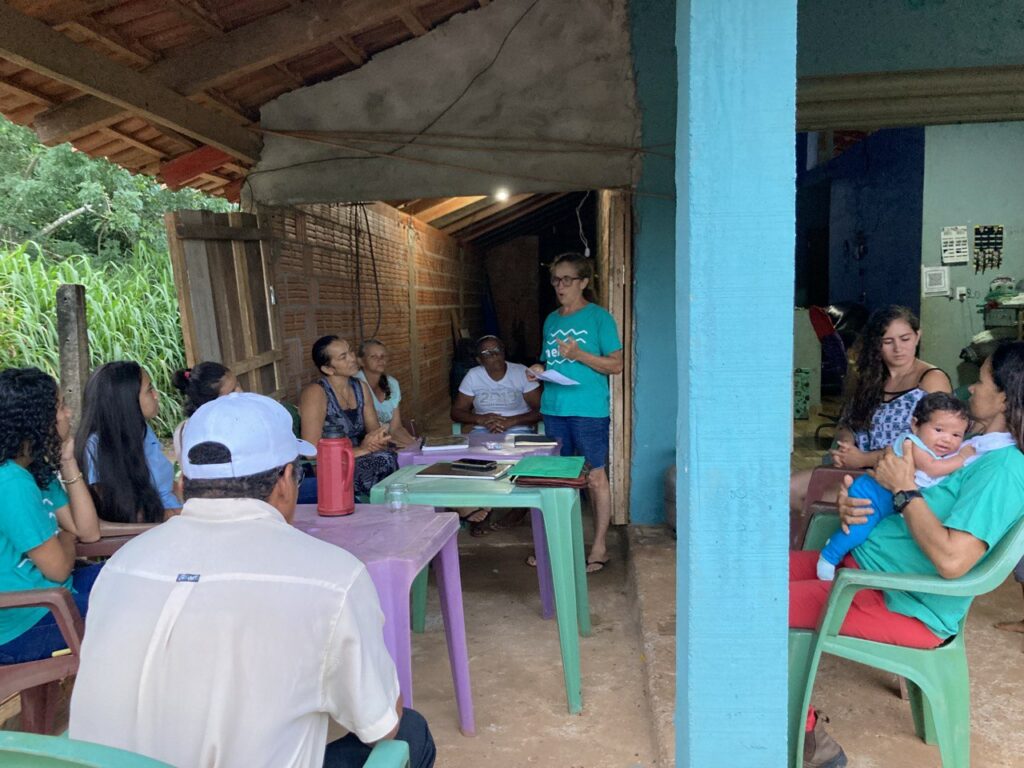
Picture: Ideas workshop (04.12.2022), Frei Henri community.
Listening to the community, we verified the importance of technical knowledge to face their situation of challenges like the dry season and uncontrolled illegal fires. Therefore, Meli contacted UFRA Parauapebas Campus teachers interested in supporting communities with academic extension activities. Professor Rafael Costa promptly responded to the request and organised a group of teachers, starting a good partnership between the academy and the community.
On 29 March 2022, a group of UFRA students, from the Agronomic Engineering and Forestry Engineering courses, went, together with the lecturers responsible, to the Frei Henri community in order to start the initial stages of the project to tackle the difficulties occurring during the drought through an academic extension activity.
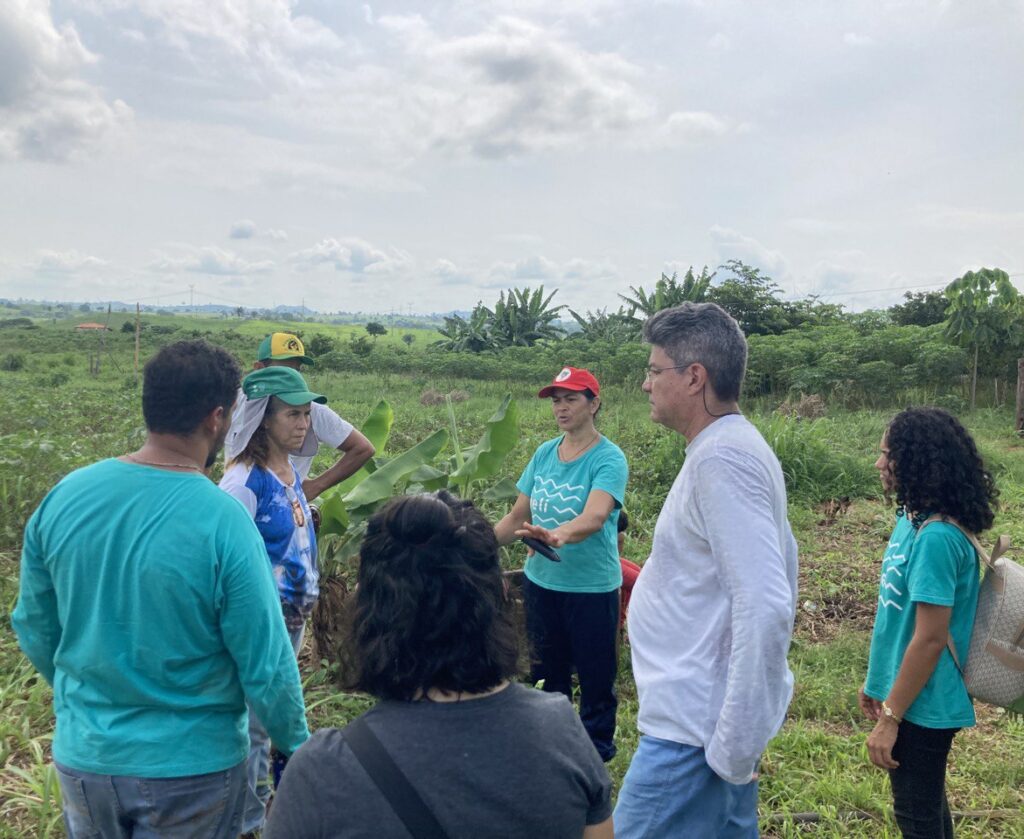
“The visit allowed the practical experience of what is worked in the classroom aligned with the reality of society, with family farming in the region. It also allows for the experience of interaction between areas and content, enabling multidisciplinarity”
Adriana Griebeler, professor: Agroforestry Systems, Forestry Engineering
Picture: Preparation visit (10.12.2022) UFRA at community.
The professors involved and responsible for the activity teach, to the participating students, subjects entirely related to the community context as Irrigation and Drainage (Prof. Rafael Costa), Agroforestry Systems (Prof. Adriana Griebeler), Topography, Remote Sensing and Geoprocessing (Prof. José Nilton) and Agrarian Development in Amazonia and Agroforestry Production Economy (Prof. Leônidas Velloso).
The students were divided into groups and visited 8 areas of families participating in the community and linked to the project. With the guidance of their teachers, they gathered the information needed to start the project.
“It was a unique experience! I visited incredible people who love what they do, want to learn more about managing their crops beyond their knowledge and this is one of the essential pillars for those who want to improve their production. The people there are very receptive, I had not visited the settlement before, I had only heard about it and it is totally different from what I heard, I liked Frei Henri a lot!”
Ana Beatriz Monteiro, 8° semester, Forestry Engineering
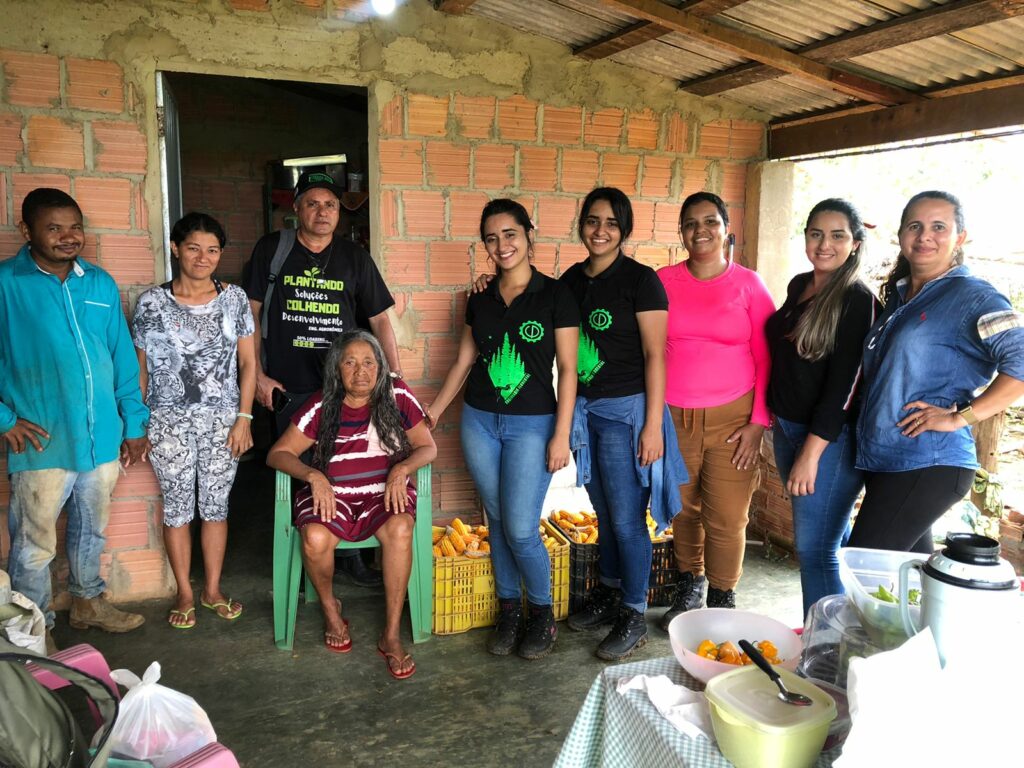
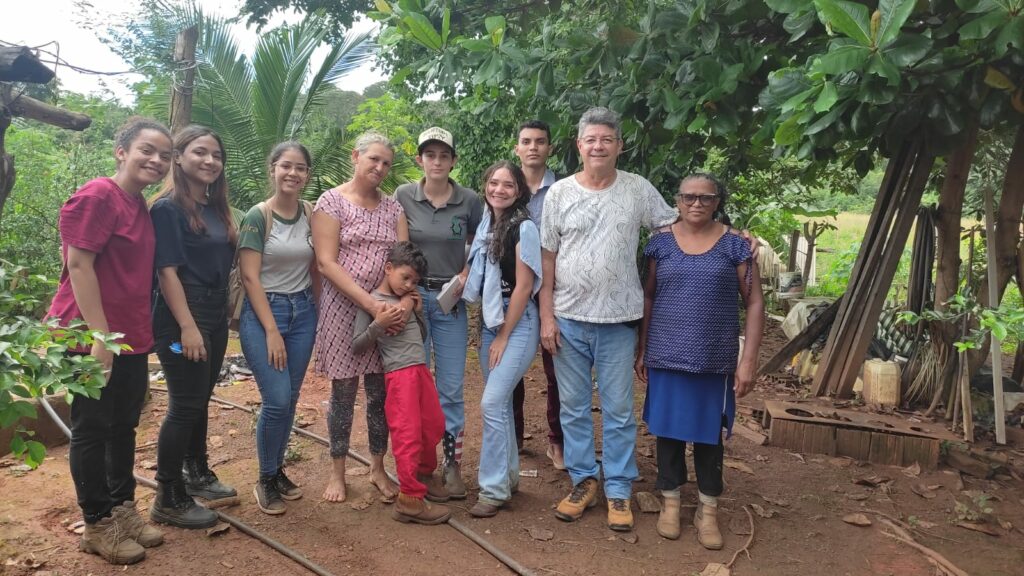
The main activities involved surveying the characteristics of the production areas, starting with the identification and spacing of the agricultural and forest crops already present or to be cultivated in the future, as well as marking the geographical points of the areas, water catchment locations and the distance from water catchment to production. With regard to the plant composition of the productive areas, a survey was conducted on the presence or absence of Agroforestry Systems, bringing together a series of information, such as the characteristics of the region, the location and the family group, the history of FAS implementation, the characterization of the FAS itself, such as age, model, species composition and spacing, description of implementation activities and maintenance of cultural treatments, whether there is production and what its destination is.
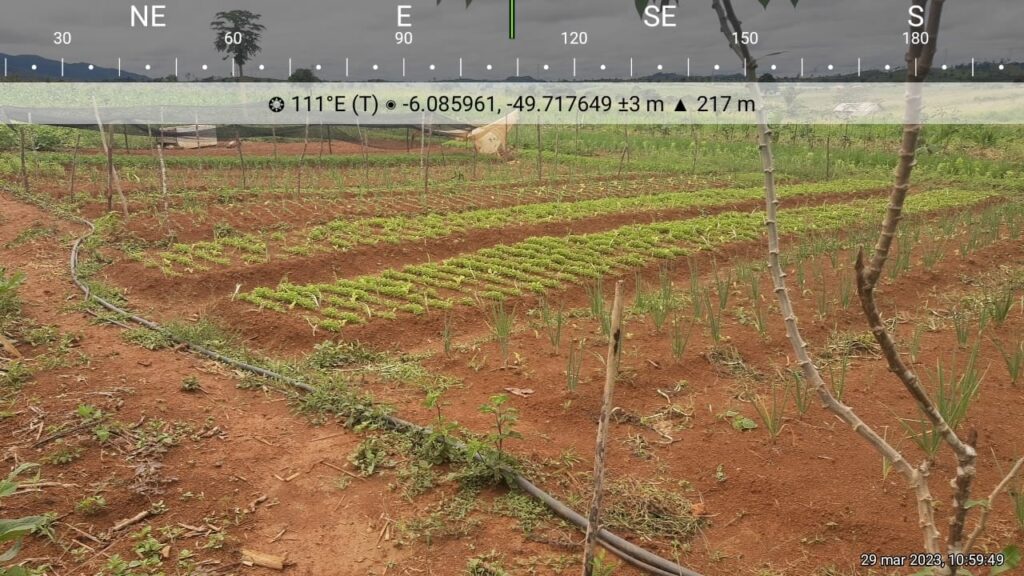
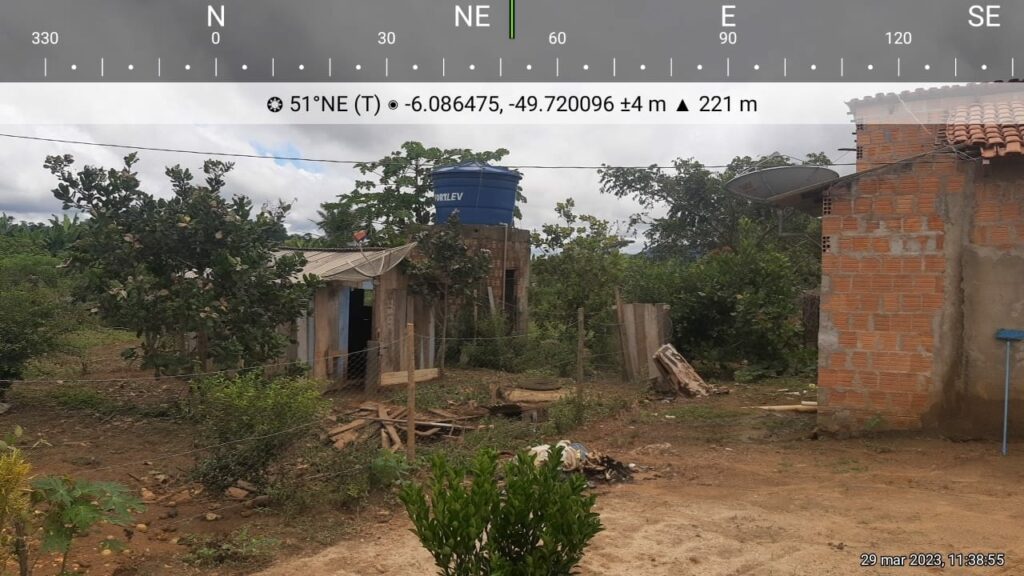
All this information will be important to support the characteristics of the irrigation project that will be installed in each area, according to the needs, besides the formulation of a SWOT matrix of the visited sites, in order to analyse and describe the possible strengths, weaknesses, opportunities and threats related to the implantation/conduction of the Agroforestry Systems present there.
After the collection of data and the closing of the activities there was an agreement to return in the future with information to the community about what was raised, and already with a next visit scheduled to the settlement for April 27 to continue the activities of project implementation. This opportunity will be, and in fact has already been in parts, an excellent opportunity for mutual development, both for UFRA students in putting into practice and learning new knowledge through the reality of the field, as well as the Frei Henri community, and more specifically the project participants, who will have the opportunity to resolve many of the difficulties they face.
Listening to the people involved in the activity, we visualised how important the visit was for the development and mutual learning. The farmers being benefited with a multidisciplinary support and the teachers with a lot of will to support sustainable and pioneer initiatives.
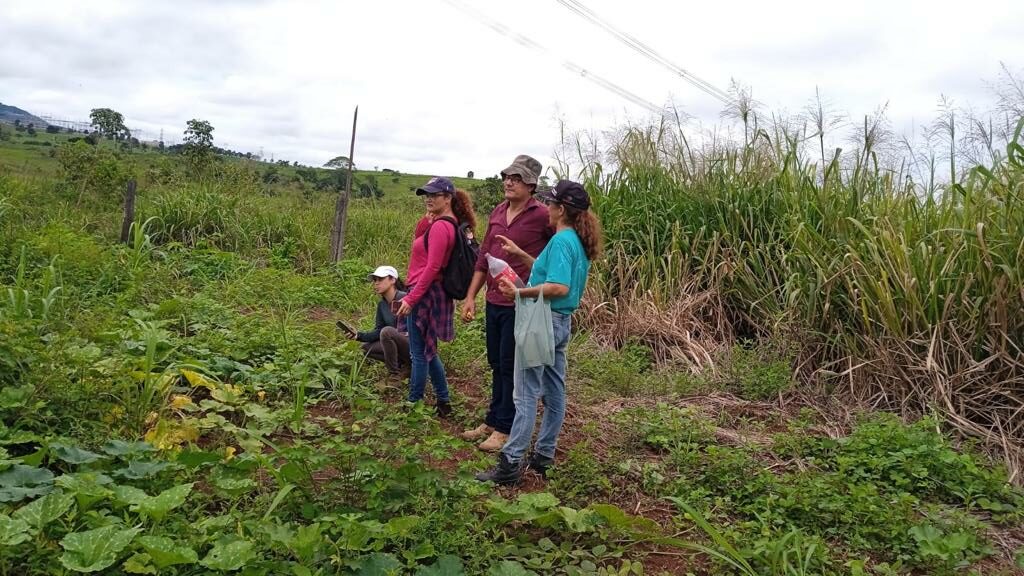
“Having contact with family producers and seeing their experience in the field and in production, as well as the struggle that they carry with them, is something that all students and professionals in agriculture should experience at least once.”
Ana Beatriz Monteiro, 8° semester, Forestry Engineering
“We are being seen, looked at with good eyes. That makes us happy.”
Reni Lourenço, from Frei Henri peasant community
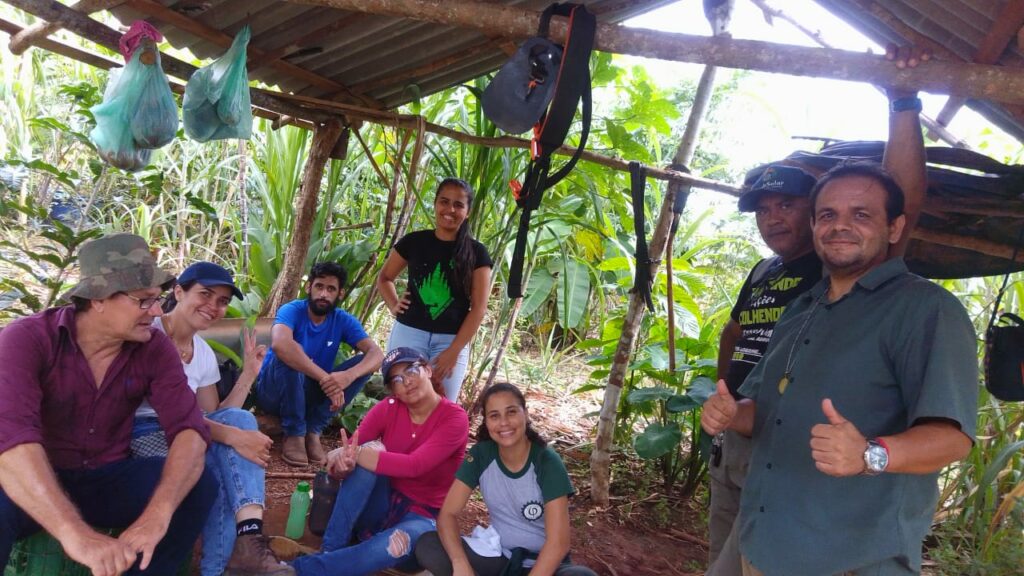
Pictures: UFRA visits Frei Henri community (29.03.2023).
The door is also open for future partnerships, such as the cultivation of Jaborandi in SAFs, which caught the attention of Professor Adriana Griebeler. At the moment the jaborandi harvest is done in an extractive way in the region. She sees as important the incentive to implant it in production areas and the research to analyze its performance, understanding the pioneering activity.
There is a long way to go to strengthen the community’s production, the first steps have already been taken. The connection between the academy and the producers is already very relevant and with many benefits for the producers, the students and the teachers. It is hoped that, in the future, both will reap good results from this connection, especially the community Frei Henri achieving better productive results from a sustainable management.
Your donation can have a positive impact on the world!
Subscribe to receive our Newsletter!
Find us also at Linkedin, Facebook, Twitter or Instagram
www.meli-bees.org
❤️
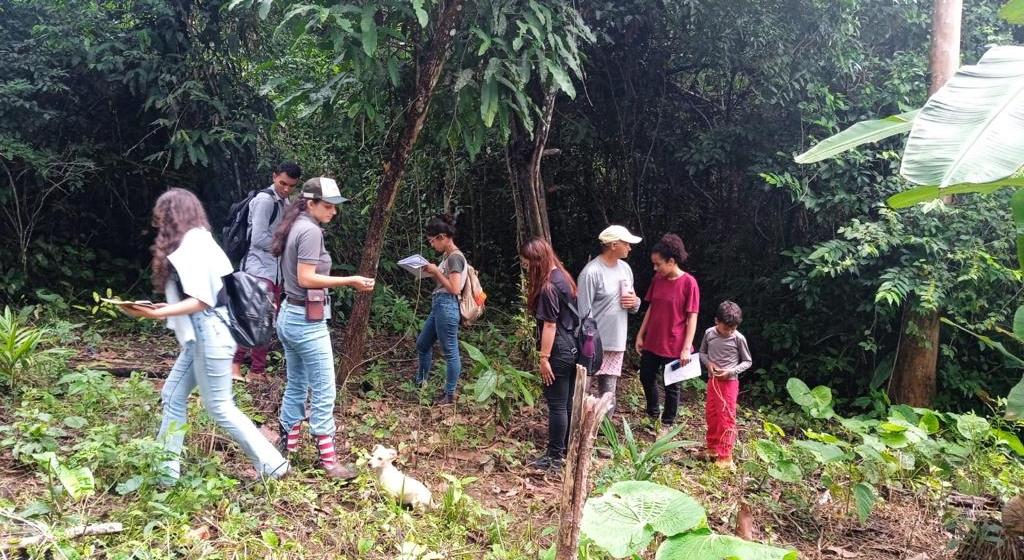
2 Replies to “Regenerative connections: the importance of the link between university and communities”